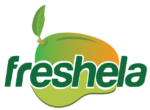
Cashew nuts are scientifically known as Anacardium Occidentale and are not a nut but a seed. It is a single-seeded nut in a hard shell that grows at the bottom of the cashew apple.
There are different types of cashew nuts but the W-180 is the most common and well known around the world.
Unlike many other nuts, cashew nuts are low in sugar and help regulate blood sugar levels. They are especially a good source of energy and thus many people love to have them at hand.
Since Australian nut producers started to explore cashew nuts for different uses, consumers have embraced different uses and forms of cashews making cashews a highly sought-after nut.
Australian importers now import different types of cashews and their products such as whole cashews, roasted cashews, and cashew butter to give consumers more options.
Cashew Prices in Australia
In 2022, cashew imports into Australia were worth over 99 million US Dollars. Although this was a slight decrease from the previous year, it was another high-value record.
The sharpest climb was from 2016 to 2017 when the import value rose from about 130 million US Dollars to around 150 million US Dollars.
Here are the total values in import of cashews in Australia between 2013 and 2022.

Cashew Nut Price per kg in Australia
In Australia, cashew nuts cost between AUD 12.03 and AUD 21.06 per kilogram. (This equates to between $8 and $14 per kilogram.)
The wholesale price is approximately between US$ 5.6 to US$ 9.8 per kilogram.
Despite the tight competition in the market, the prices of cashew nuts in Australia are steady and affordable throughout different seasons of the year with slight increases or decreases in the prices.
The processing of nuts also incurs extra costs and makes cashew prices, especially the processed and ready-to-eat cashews fluctuate with different retailers in terms of making a profit.
The materials involved in the packaging and shipping of cashews also play a role in the differentiation of prices. Many retailers use these factors to apply their profit margins to the costs of cashew nuts which results in the final prices that are set for consumers.
Packing and packaging are important because cashew nuts need to be sturdy enough during transportation to endure any exterior pressure without causing damage to the interior. The materials used in packaging are moisture barrier or moisture-absorbing materials to preserve the flavor of the nuts.
Cashews Australia
Australia imports processed cashews without shells, also known as Kernels as well as whole cashews. These can be shipped as packages in different sizes to cater to consumers’ different needs and preferences or can come as one unpacked shipment to be packed and branded in Australia.
Cashew nut shipments are packed in containers in such a way that they withstand the rigors of transportation and shipping.
However, because of demand for the whole cashews by retailers, farmers, and other consumers, Australia also imports a good amount of whole cashew nuts to meet the market demand and diversify the use of cashews that come from cashew shells.
Cashew Nuts Australia
The majority of Australian cashew nuts come from Vietnam, Sri Lanka, and India. These countries and others ensure that there is a consistent supply of cashew nuts in the local market. All prepared and packaged cashew nuts are allowed into Australia for both commercial and consumption purposes.
Whole sellers and retailers in Australia get their cashews directly from farmers in the producing countries to get better quality nuts and also maintain a stable supply of cashew nuts for their consumers.
Online marketplaces are also on the rise in Australia, making it easy for more consumers to directly access and shop their preferred form of cashew nuts at their convenience.

